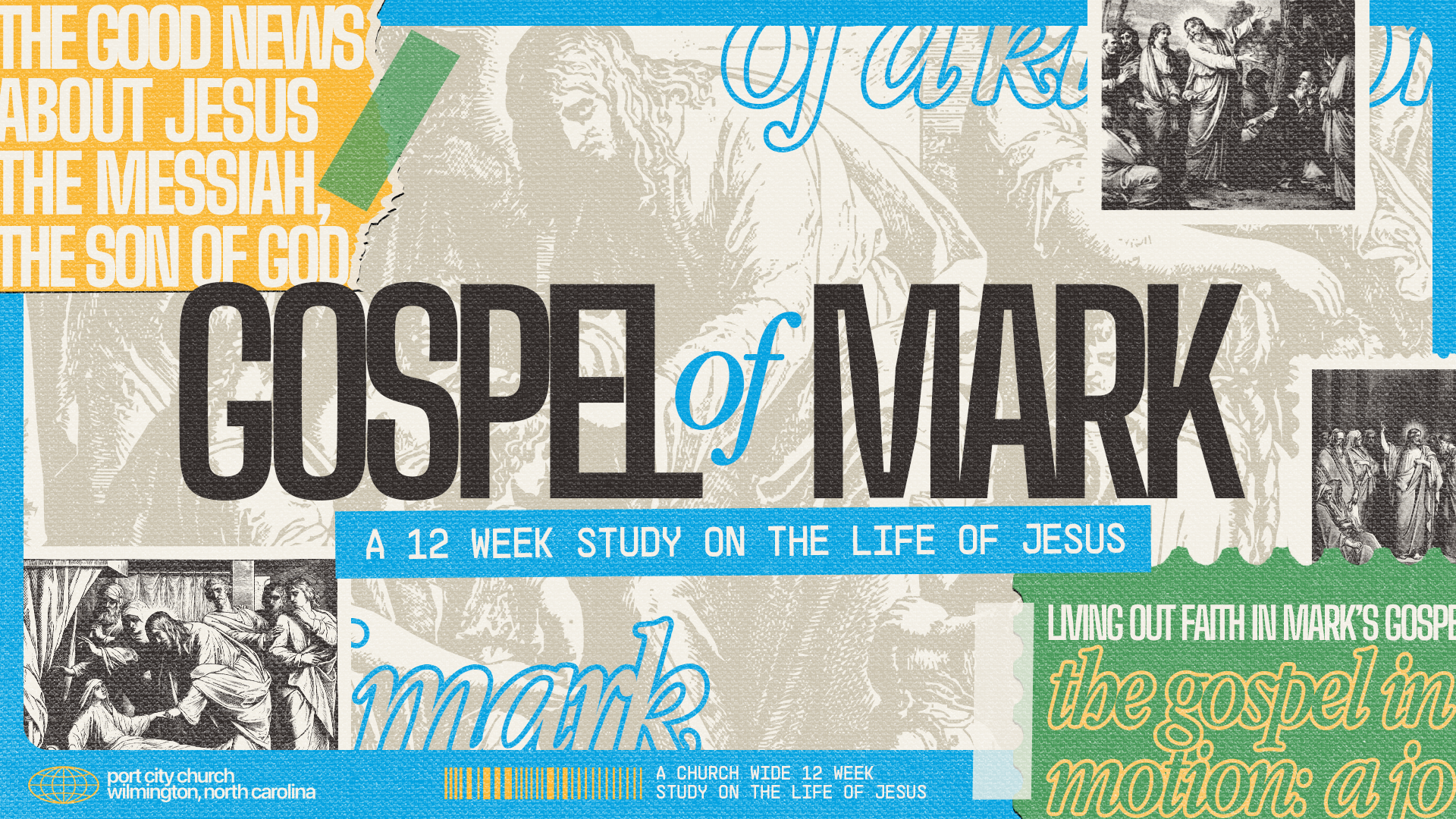Worth It
READ
Have you ever wondered if you're giving up too much to follow Jesus? After watching the wealthy young man walk away full of sorrow, Jesus seizes this teachable moment to address the deep tensions between earthly security and kingdom values.
Let’s take a moment to read Mark 10:23-34:
Jesus looked around and said to his disciples, “How hard it is for the rich to enter the kingdom of God!”
The disciples were amazed at his words. But Jesus said again, “Children, how hard it is to enter the kingdom of God! It is easier for a camel to go through the eye of a needle than for someone who is rich to enter the kingdom of God.”
The disciples were even more amazed, and said to each other, “Who then can be saved?”
Jesus looked at them and said, “With man this is impossible, but not with God; all things are possible with God.”
Then Peter spoke up, “We have left everything to follow you!”
“Truly I tell you,” Jesus replied, “no one who has left home or brothers or sisters or mother or father or children or fields for me and the gospel will fail to receive a hundred times as much in this present age: homes, brothers, sisters, mothers, children and fields—along with persecutions—and in the age to come eternal life. But many who are first will be last, and the last first.”
They were on their way up to Jerusalem, with Jesus leading the way, and the disciples were astonished, while those who followed were afraid. Again he took the Twelve aside and told them what was going to happen to him. “We are going up to Jerusalem,” he said, “and the Son of Man will be delivered over to the chief priests and the teachers of the law. They will condemn him to death and will hand him over to the Gentiles, who will mock him and spit on him, flog him and kill him. Three days later he will rise.”
REFLECT
His striking image of a camel squeezing through a needle's eye leaves the disciples astounded – if the wealthy, whom they viewed as specially blessed by God, couldn't enter easily, what hope existed for anyone? Jesus' response revolutionizes their understanding: "With man it is impossible, but not with God." Salvation operates on divine mathematics, not human calculations. It's like learning to ride a bike – what seems impossible at first becomes natural with God's help. Peter, being characteristically direct, points to their sacrifices, voicing the question that often echoes in our own hearts: "Was giving up everything worth it?"
The rewards Jesus describes defy worldly logic while remaining deeply practical. Those who surrender possessions gain hundredfold returns, though not necessarily in material wealth. The exchange rate in God's kingdom operates at a different level. When we release things for Him, He gives back in ways we couldn't imagine – deeper relationships, spiritual family, purpose, and joy. Yet Jesus remains refreshingly honest – these blessings come "with persecutions."
For the third time, Jesus predicts His coming suffering, death, and resurrection. The timing proves significant – right after discussing rewards and sacrifice. It's as if He's saying, "I'm not asking you to do anything I'm not willing to do myself." By linking these themes, Jesus demonstrates the ultimate pattern of kingdom life: through death comes life, through giving comes receiving, through loss comes gain. For modern believers navigating career decisions, relationships, and cultural pressures, these words land both as challenge and comfort. When following Jesus means swimming upstream, we're reminded that God specializes in doing what humans cannot achieve.
The disciples' journey from fear to faith mirrors our own. Their anxious question, "Who then can be saved?" receives Jesus' compassionate assurance of God's power. Think of it like a trust fall – it feels scary to let go, but that's when we discover the strength of the arms catching us. When kingdom living seems impossible by human standards, we're reminded that salvation, transformation, and faithful endurance all flow from God's ability, not ours.
Jesus concludes with another kingdom paradox – the first will be last, and last first. This principle threads throughout the passage, challenging our metrics for success while offering profound hope. The ones who seem to be winning at life might actually be losing, while those who seem to be giving up everything are secretly receiving the best gifts of all.
RESPOND
Take a moment to process what God might be leading you to do in light of what you read.
What "impossible" situations in your life need to be surrendered to God who makes all things possible? When have you experienced God's power showing up in moments of letting go?
How does seeing Jesus' willingness to walk the path of sacrifice first change your perspective on what He's asking of you today?
REST
Take a moment to rest in God’s presence and consider one thing you can take away from your time reading, then close your devotional experience by praying:
Lord of impossible things, thank you for being honest about both the cost and the promise of following You. Help me trust yYour upside-down kingdom principles when letting go feels scary. Thank you for not asking me to sacrifice anything You haven't sacrificed first. When I'm counting the cost of discipleship, remind me that what You offer far exceeds what I could keep for myself. Make me willing to be last that You might make me first in Your way and time. Give me courage to trust You one step at a time. Amen.

